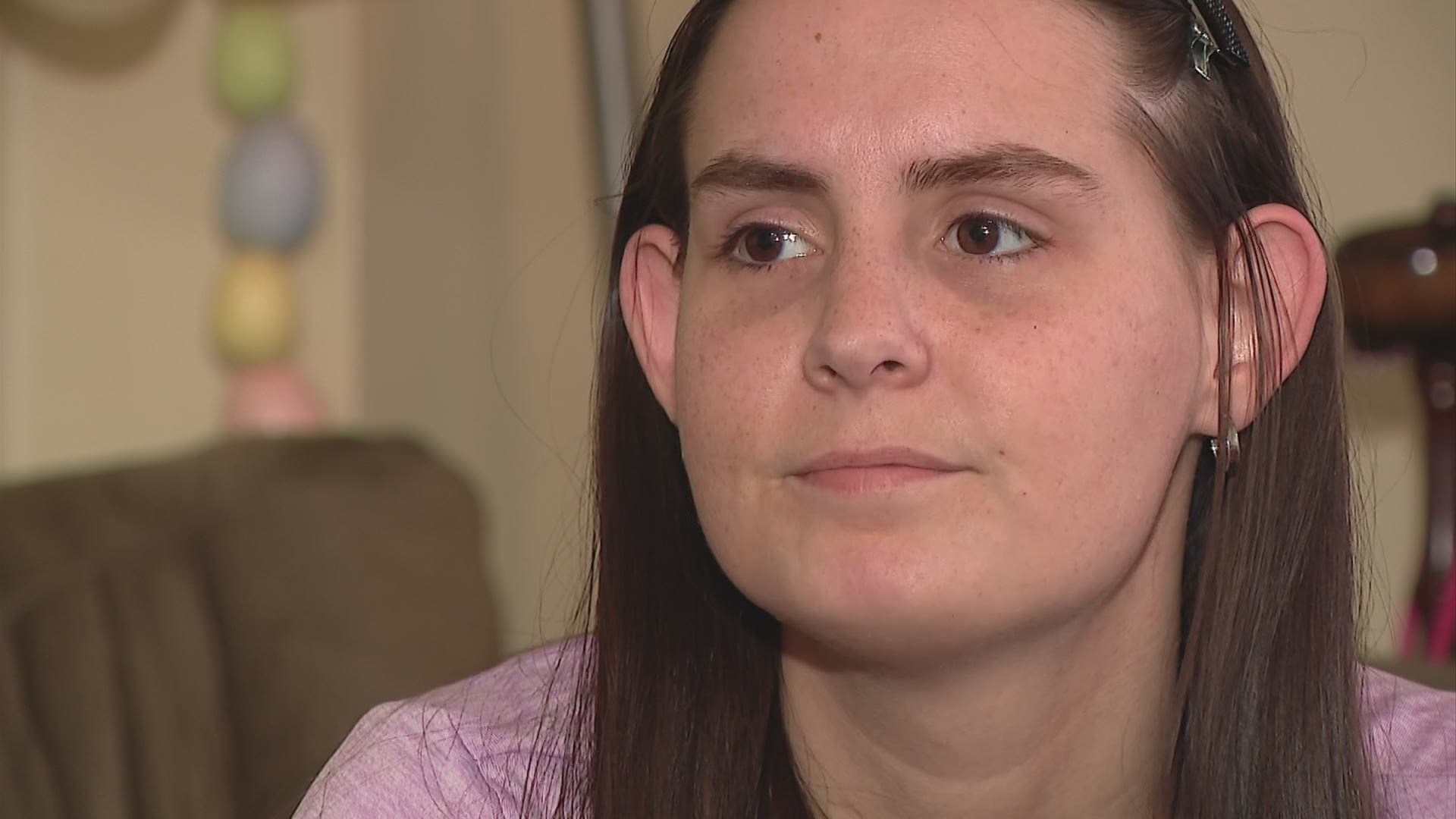NEWARK, Ohio — Almost five years ago Crysta Joehlin asked herself a question.
In the back of a Newark ambulance while high on heroin, Joehlin tried to answer “What do I want?” At the time it was to get clean.
Almost five years later, Joehlin struggles yet celebrates being 19 months clean.
“A lot of relapses,” she said. “They say that’s a part of recovery. I thought it was bull crap at first, but now that I’ve come so far along this is the longest I’ve been clean. I’m actually really proud of myself. I’ve come such a long, long way.”
Joehlin is 29. Before getting clean she had used off-and-on since she was 15. For the last five years, she’s been on Suboxone and that, she says, isn’t going as well as she’d like.
“[It’s] like I’m stuck,” Joehlin said. “I switched one drug from another. After five years you just kind of get sick of it.”
RELATED: Hooked on Heroin: Hoping for help
She feels after five years she should be at the point of getting off Suboxone and being done with the daily sickness. Joehlin says she even feels pressure to get off the medicine from her family and her sponsor.
“Unless we really understand the true nature of the disease that’s where a lot of confusion comes,” Dr. Vin Shukla said.
Dr. Shukla is not Joehlin’s doctor but he is an addiction medicine specialist with OhioHealth.
He says the active ingredient in Suboxone is buprenorphine. It is a partial opioid that is a long-acting medicine that binds to the same receptors as when someone uses, except without the euphoric sensation. Also in the medicine is naloxone to help prevent the misuse of buprenorphine. When it comes to using this medicine, Dr. Shukla says each person is different.
“We have to tailor the treatment based on the severity of the disease,” Shukla said. “Medicine is simply a tool to help address the disease process.”
Dr. Shukla is also quick to point out that Suboxone is to addiction as medicine is to heart disease or insulin is to diabetes. He says Suboxone, essentially, is to allow an addict to lead a productive, healthy life while also bringing in other lifestyle changes like dieting or behavioral. Depending on the person, he says, medicine could be something you always take for that reason.
“You were being so successful in treatment – the recipe, the ingredients that you had in treatment…here’s the medicine, here’s the behavioral component…it was keeping your disease in check,” Dr. Shukla said. “You remove those ingredients [and] yes, the disease will flare up.”
“I may not be able to live without [medicine],” Joehlin said. “That could be possible, yeah.”
Joehlin has come a long way since her time in the back of that ambulance. She’s not where she wants to be but she’s getting there as long as she keeps asking that same question and, with it, keeps answering.
“What do you want, basically,” she said. “What do you want? Do you want to be like this for the rest of your life or do you not? And, I didn’t want to be and I’m not going to be.”

